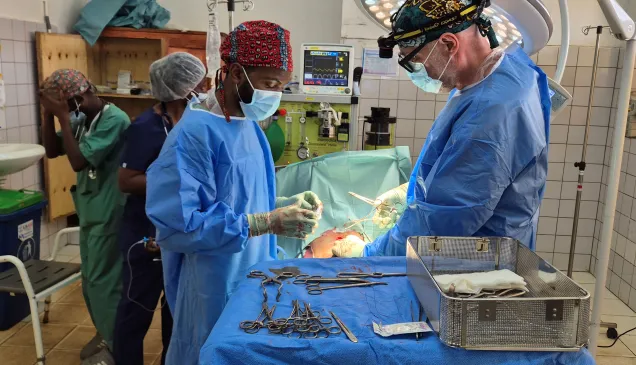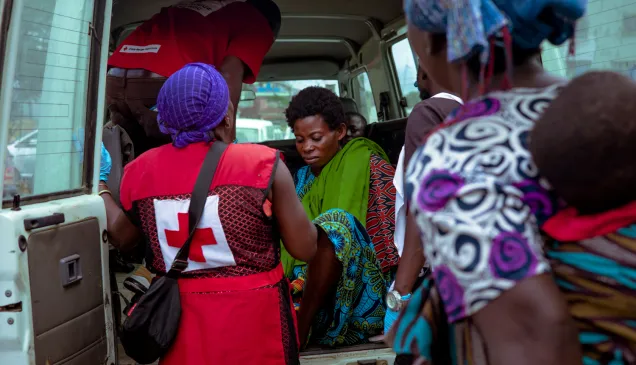Humanitarian Visa d’Or: Hugh Kinsella Cunningham wins for documenting the plight of civilians in the DRC
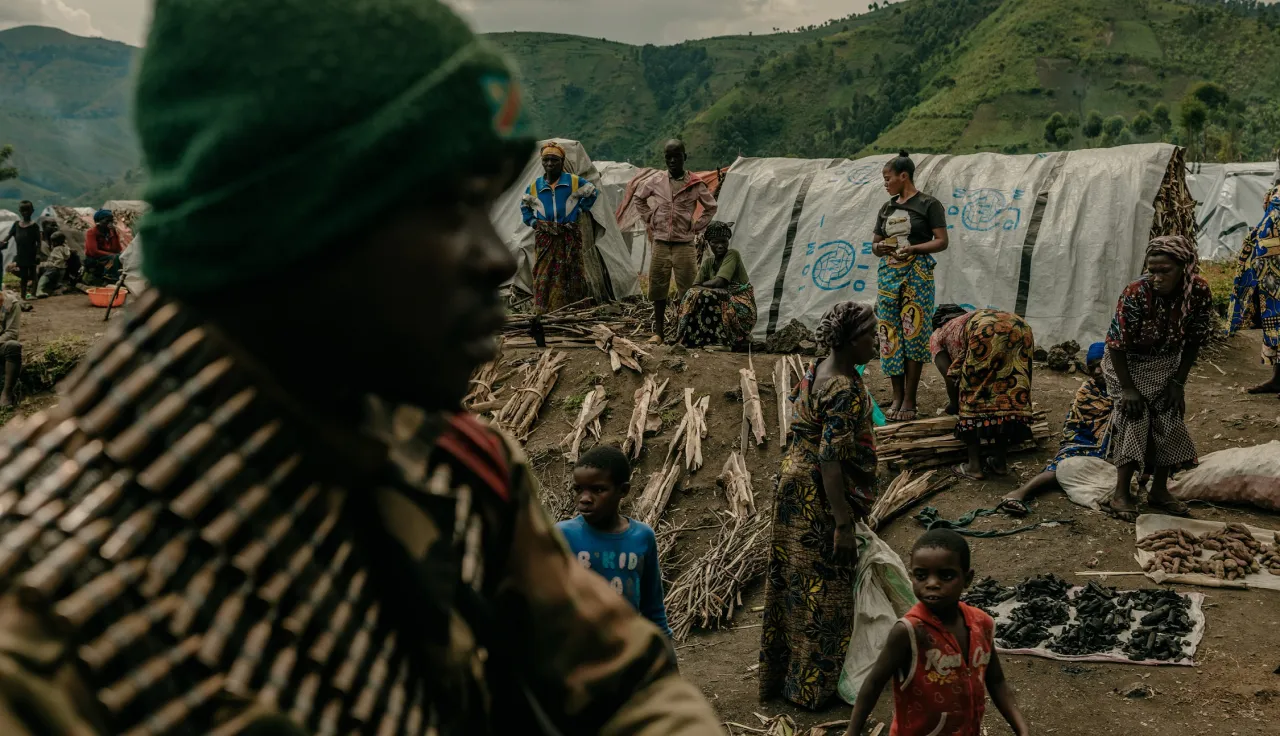
On 18 June 2024, for its 14th edition, the ICRC’s Humanitarian Visa d’Or was awarded to freelance photographer Hugh Kinsella Cunningham for his remarkable reporting on civilians caught up in the armed conflict in eastern Democratic Republic of the Congo (DRC).
Latest update 10 September 2024
"That's five years of my life!" Cunningham said, brimming with emotion, upon learning he had received the ICRC's Humanitarian Visa d'Or award in a near-unanimous decision by the jury. He has been reporting for years on the impacts of armed conflict between government forces and the March 23 Movement (M23) in the DRC.
This conflict stops civilians from having any control over their own story and now with the use of heavy artillery against civilians... It's such an important issue, a really neglected conflict. So, it's amazing to think that more people will learn about something they might not necessarily be exposed to in the news.
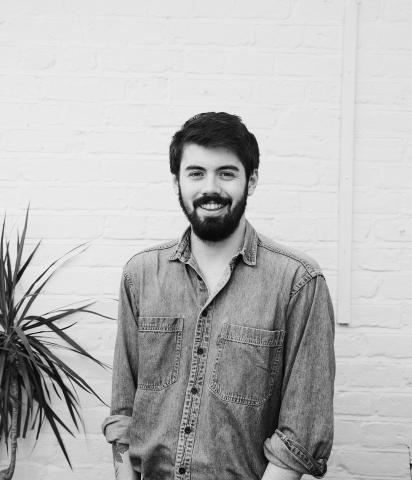
Hugh Kinsella Cunningham,
photographer and winner of the ICRC Humanitarian Visa d'Or award
Isabelle de Lagasnerie, chief photo editor for the French newspaper La Croix, was emphatic: "The quality of the photographs – composition, angle, editing – is undeniable. They tell a story, complement one another and take us on a journey. Each photo raises questions, commands attention and has subtext that enriches the story."
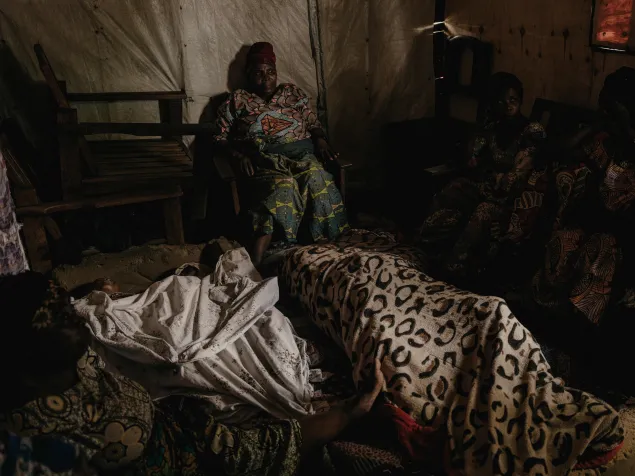
Grieving community members sit and wait for an ambulance to arrive and remove the bodies of 3 victims of a mortar strike.
The theme for the 14th Humanitarian Visa d'Or was "Civilians, the primary victims of armed conflicts" in honour of the 75th anniversary of the Fourth Geneva Convention, which protects civilians in wartime. It was hard for the jury to pick a winner among projects that also included work about Ukraine, Gaza, Israel, Myanmar and Sudan.
"I was moved by the work of a photographer in Gaza and this one about the DRC," said Jean-François Corty, president of Médecins du Monde. "A consensus formed around the photographer working in the DRC, as civilians there have been suffering terribly for many years, and humanitarian workers are also struggling to meet their needs. This is a photographer who has put his back into it and been right in the thick of things alongside civilians and humanitarian organizations."
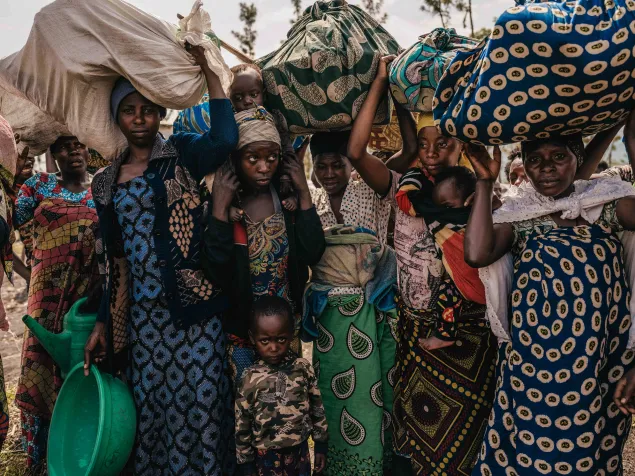
Community members flee to the town of Sake. After arriving to safety, displaced families must build shelter and search for food.
Over 5.6 million people have been displaced by conflict in eastern DRC, with 2.5 million displaced in North Kivu province alone. The humanitarian crisis in the region has been devastating. "Over a million people are wandering the outskirts of Goma. The displacement camps are overflowing, just completely saturated. It's an absolutely horrendous situation," said Claude Guibal, international correspondent for Radio France, who recently reported in Goma region. "Even accessing the area is extremely complicated. The choice of subject – and the incredible strength of the work – is a reminder of what life is like for civilians in East Congo."
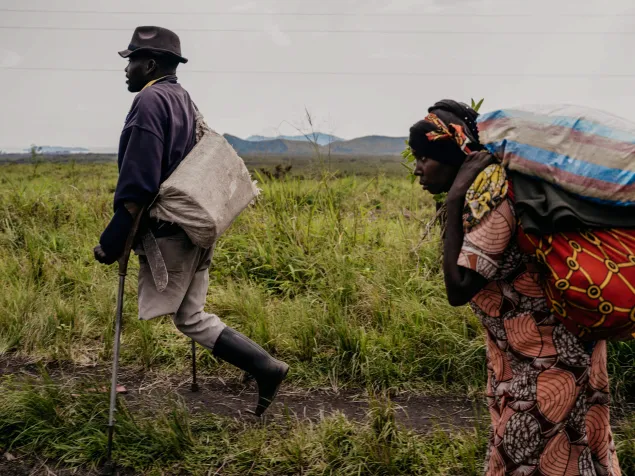
A family flees to the city of Goma. Artillery impacts could be heard behind the fleeing civilians.
"A photo that stood out for me shows two people, one of whom is missing a leg and walking on crutches. It's an eternal journey that has gone on for decades," said Christophe Martin, head of the ICRC's delegation in Paris. "I worked in the DRC for a time, and I was able to see first-hand what unfortunately remains a reality to this day: it's a conflict that never ends. Civilians are caught in the crossfire between different groups. The ICRC is trying to meet their overwhelming need for help by taking action and staying close to people on the ground. I'm happy that this photojournalism pays clear tribute to all the people who are struggling in that part of the DRC."
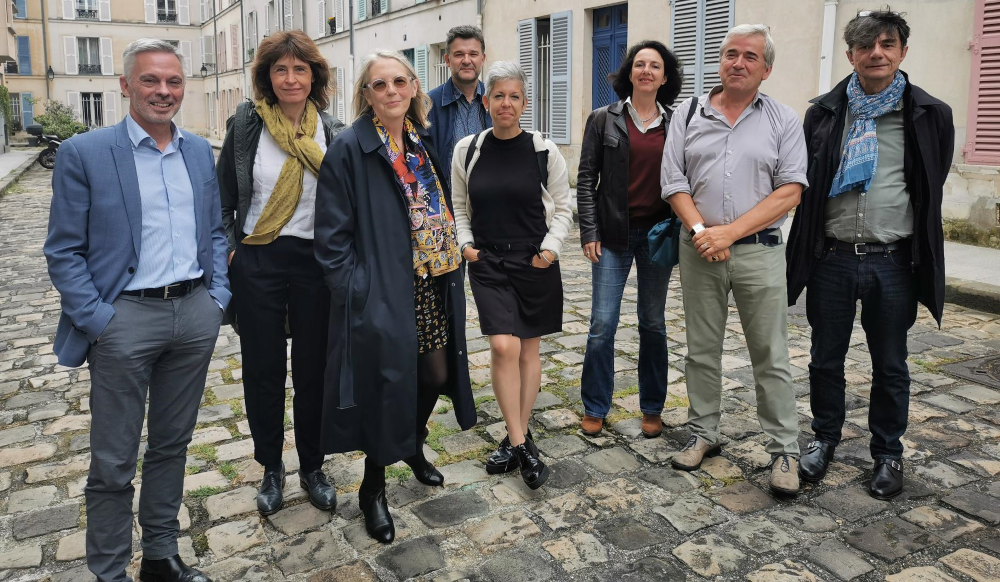
The jury was made up of (left to right):
- Christophe Martin, head of the ICRC delegation in France
- Marie-Hélène Barberis, freelance researcher-documentalist
- Isabelle de Lagasnerie, photo editor, La Croix daily newspaper
- Jean-François Corty, President of Médecins du Monde
- Claude Guibal, foreign affairs reporter, Radio France
- Véronique Gaymard, journalist, Radio France Internationale
- Frédéric Joli, former ICRC spokesperson in France
- Cyril Drouhet, photo and reporting director, Le Figaro Magazine
Hugh Kinsella Cunningham's work was exhibited at the Visa pour l'Image festival held in Perpignan in early September 2024. It was at this international photojournalism festival that the photographer received the Visa d'or humanitaire award from Christophe Martin, head of the ICRC delegation in France. As every year, the festival ceremony took place in the Campo Santo, the festival's legendary screening venue. The prize of 8,000 euros will help the winner to undertake new projects.

